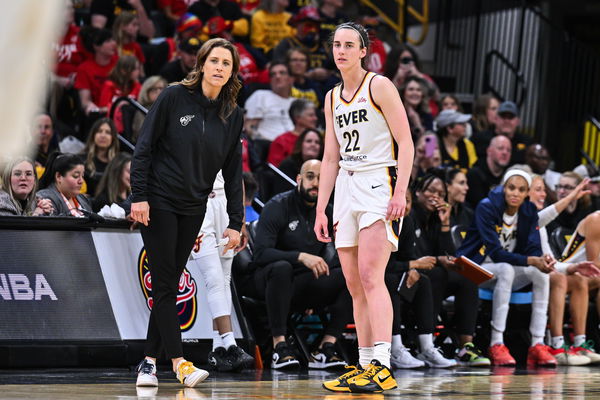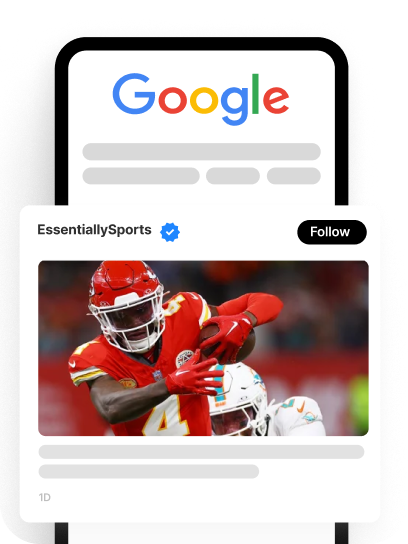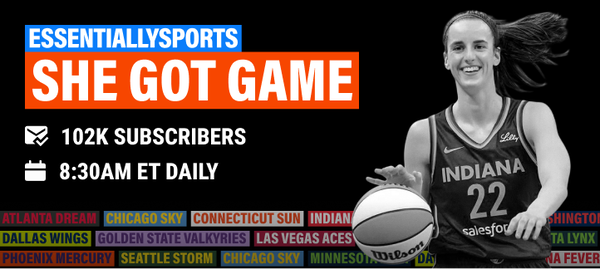

Caitlin Clark made history, but her team was down in the trenches. When the Indiana Fever arrived at the State Farm Arena on Tuesday, hopes were high, fueled by a four-game winning streak. By the end of the night, though, it was clear things were far from as polished as the team wanted to project. Yes, Clark did surpass three-time All-Star Sabrina Ionescu to set a record for the most 25-point, 10-assist games in WNBA history. The Fever, though, fell 91-90.
Watch What’s Trending Now!
Despite a strong offensive showing, the lack of chemistry—especially among new team members—was underwhelming. In fact, 75 of the 91 points came from the core trio of Caitlin Clark, Kelsey Mitchell and Aliyah Boston, with veteran DeWanna Bonner failing to score even a single point. “Kelsey and [Aliyah Boston] and Caitlin have played together so they have this synergy and really with [DeWanna Bonner] and with [Natasha Howard], how we bring them into the fold…that’s a challenge that we’re looking into,” coach Stephanie White had said post-game.
So when the team walked into the same venue two days later, it wasn’t just a game—it was payback. After their first win this season, Aliyah Boston had warned, “Don’t get comfortable.” On Thursday, the Fever made sure Boston’s advice didn’t go to waste. Despite a slow offensive start, strong defensive play from Clark’s team kept the game in their hands, ending the first quarter trailing 13-18. By halftime, the scoreline settled as a 37-34 lead for Indiana. And when the final whistle pierced the air, the Fever secured a hard-fought 81-76 road victory. That’s quite the comeback, to be honest. But what exactly changed? Well, according to Howard, it’s all because of the locker room vibe…
After the game, the 33-year-old didn’t just speak—she testified. When asked by a journalist what changed after Game 1 with the Dream, she said, “Getting out of my own head. That’s the thing. I was in my own way. But thank God I got to have my teammates behind me to bring that confidence out of me tonight. I couldn’t do that without them, tonight, also my coaches as well.” That’s not just gratitude—that’s a window into a culture where belief travels fast. It showed in her performance, too. In the second half, the player lit the court on fire scoring 13 points in the third quarter (seven in the first few minutes), four points in the fourth quarter, and seven rebounds, to conclude the night with a game-high 26 points.
And that spark? Sometimes it’s as simple as a high five from Lexie Hull. Not flashy, but effective. “I’m really just happy to see my teammates do well,” Hull said in the postgame presser, “and when they’re not, trying to pick them up as much as I can. So if that’s a high five, if that’s words of encouragement… I just try to bring out the best in people and be that positive energy because games go up and down. Hopefully, those downs are as short as they can be.”
That kind of energy doesn’t go unnoticed—especially by Coach Stephanie White. “It’s huge,” she emphasized while talking about Hull’s energy. “There was a study done in the NBA a while back about how important those moments are. Doesn’t matter if things are good or bad—just that little bit of encouragement, that little bit of ‘We got your back.’ I mean, it all matters.” And in a game where momentum flips in milliseconds, that silent trust? That’s gold.
The study she’s referring to is a 2015 research project by the University of California, Berkeley, which showed that the most successful NBA teams overwhelmingly displayed the highest levels of player interactions.
In fact, that explains everything. Even the fact that despite Caitlin Clark’s 3-point radar completely losing signal—going 0-5 from deep and snapping a 140-game streak without a miss from beyond the arc—the Fever didn’t flinch. And that’s exactly the kind of positivity Coach White pointed to, which helped Clark still contribute 11 points and six assists despite a tough shooting night.
On top of that, veterans Kelsey Mitchell’s 17 points and Natasha Howard’s 26-point performance sealed the deal. Throw in Sophie Cunningham’s fiery return and a sold-out crowd at State Farm Arena, and you’ve got a team that knows how to ride the momentum and make it count.
But behind all that momentum is a strategic dance—that’s where White’s playbook shines.
Caitlin and Co’s Strategic Edge Amid Tough Matchups
Indiana’s roster is built backcourt-heavy and wings-deep, with Aliyah Boston standing as the lone big holding down the paint. This structure presents both a blessing and a puzzle when it comes to matchups—especially against Atlanta’s Olympic-level talent.
Despite coach Stephanie White’s best efforts with her playbook, she candidly admitted after the game, “I don’t feel like we match up well with them,” with a chuckle. “They’re tough to handle. They’ve got a lot of Olympians, they’re quick and skilled on the perimeter, big and strong inside, and they’ve got experience.”

Imago
May 4, 2025; Iowa City, IA, USA; Indiana Fever guard Caitlin Clark (22) looks on with head coach Stephanie White during the third quarter against the Brazil National Team at Carver-Haweye Arena. Mandatory Credit: Jeffrey Becker-Imagn Images
But where other teams see mismatches, the Fever see opportunities. “We have to use our versatility to combat some of that size,” White explained. “And we have to use our depth to try to wear down their really great guards. That’s why it takes a collective effort, and the contributions from our bench were huge.”
Versatility. Depth. Chemistry. That’s Indiana’s blueprint.
Looking ahead to their June 10 rematch, what truly sets the Fever apart isn’t just schemes or shooting percentages. It’s the intangibles—the unshakable belief, the shoulder taps after turnovers, the silent nods that say, “We’ve got this.”
In a league brimming with talent, Indiana is reminding everyone that the best teams aren’t just built—they’re bonded. And that locker room vibe? It might just be their secret weapon.

